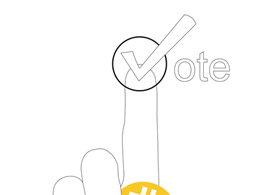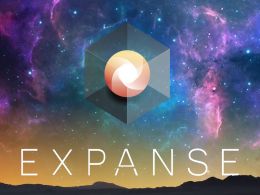
Blockchain-based voting systems have potential despite security concerns
Experts explain why blockchain-based systems are still more efficient then paper ballots or online voting systems The 2020 United States presidential election was met with an increase in mail-in ballots due to COVID-19 concerns. Yet while many Americans stayed away from polling stations this year, postal delays, rejected ballots, and other challenges emerged.Unsurprisingly, better ways for casting votes during major elections quickly became a hot topic of discussion. This has also led some in the crypto community advocating with renewed vigor for a blockchain-based voting system to be used....
Related News
15 March 2016 – There’s been a lot of contentious events surrounding privacy, encryption, and data security in the past few weeks covered in the media. With the US Presidential Primaries in full swing, and the presidential election looming closer on the horizon, few seem to be concerned with securing that most basic of civil liberties enjoyed in democratic nations: the right to vote. In the US, electronic voting machines, specifically the type manufactured by Election Systems & Software, are employed in the majority of US voting districts, and the security risks of their widespread....
“I haven't yet seen a blockchain system that I would trust with a county-fair jellybean count, much less a presidential election.” While certain parties in the United States continue to challenge the integrity of the election process, a group of researchers is advocating against using Internet-based and blockchain-based voting systems in the future.According to a Nov. 16 report from researchers at the Massachusetts Institute of Technology’s Computer Science and Artificial Intelligence Laboratory, relying on blockchain voting technology is not a reliable means of promoting greater turnout....
We talk with Eduardo Robles, and along with David Ruescas, they are the main proponents of the Agora Voting project. Ferdinand Reyes: What is Agora Voting? Eduardo and David: Agora Voting is a free software voting system, born as Agora Ciudadana (Citizen Agora) in 2008 by a group of developers looking for creating a voting system useful for Partido de Internet (Internet Party). Currently fifteen persons work on this project and it has been used in two experiences in Spanish Parliament and pirate parties around the world. It is a flexible tool which can adapt to several use cases: different....
The Expanse Project has announced the development of a blockchain-based voting platform, which, according to developers, has “the potential to change the dynamics of future elections.” Expanse Wants to Take Voting to the Blockchain. According to a press release, this new project will provide voting services secured by an immutable blockchain. By virtue of the blockchain technology, said the Expanse team, their voting protocol will store voting data forever in a tamper-proof manner that is accessible across the globe. This platform reportedly makes voting easier, while making it harder to....
That being said, scaling decentralized e-voting systems is a complex task. In an interview with Cointelegraph, Charles Hoskinson suggested that a Cardano-based solution might make blockchain voting possible for future national elections. He stated: “Not only do I believe — we've been building the infrastructure for that."Hoskinson acknowledged that the road to Cardano-based elections would be gradual and require a number of experiments. He suggested that it could start with third parties using the network for their primaries, before escalating to municipal and state elections. From there,....





